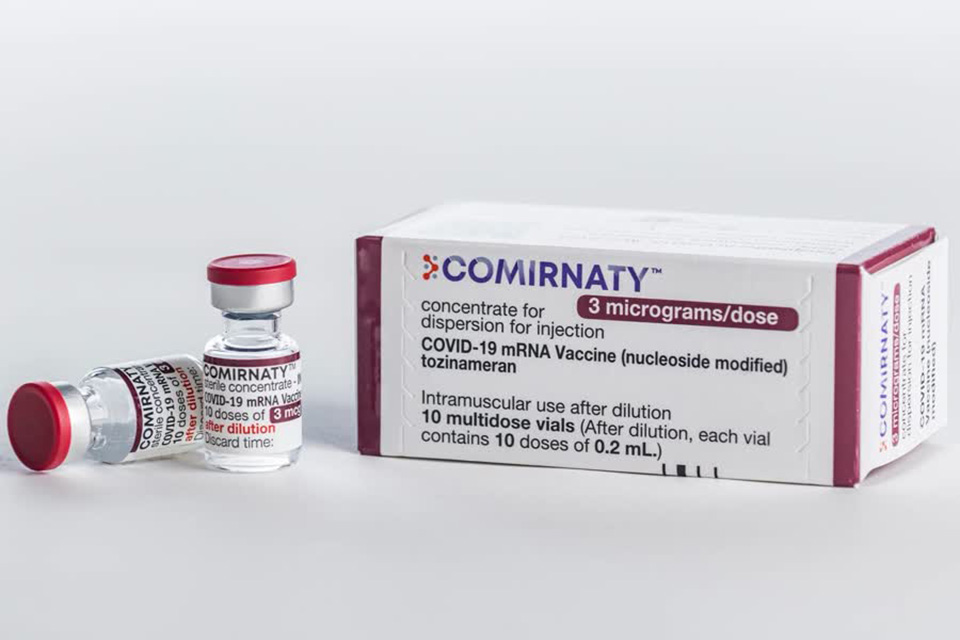
Although COVID-19 has been reclassified as a communicable disease under surveillance, the health ministry continues to encourage people to get vaccinated. This is especially true for booster doses that will raise immunity in vaccinated individuals. Meanwhile, vaccination of very small children aged 6 months to 4 years is set to commence on October 12.
Public Health Ministry Permanent Secretary Opas Karnkawinpong held a meeting to clarify the guideline for administering COVID-19 vaccines to children aged 6 months to 4 years. Representatives of public health offices nationwide were in attendance.
The meeting was called to ensure readiness and safety for the vaccination of small children, which will begin on October 12. Public health minister Anutin Charnvirakul presided over the meeting, which was held at Phra Nang Klao hospital in Nonthaburi.
The type of vaccine to be used is Pfizer’s vials with dark red caps. Department of Disease Control (DDC) acting chief Tares Krassanairawiwong said the vials arrived on 7 October. After the Department of Medical Sciences certifies the batch of vaccines, the vials will be delivered to public health offices around the country. Dr. Tares said a large number of parents have already given their consent to have their young children vaccinated. He added the dark red cap Pfizer vaccine can be made part of a child’s vaccination regimen that also includes other vaccines.
DDC Deputy Director-General Sopon Iamsirithaworn said the rate of illness and deaths in small children was 3 times higher than in older children. Vaccination of small children will, therefore, help bring down the rate. Each dose will consist of 3 micrograms of vaccine and 3 doses will be administered for each child. The dosage is significantly smaller than the 30 microgram dose for adults and the 10 microgram dose for children aged 5-11 years. The second dose will be administered a month after the first, while the third dose will be given 2 months after the second.
Dr. Wanatpreeya Phongsamart, head of the pediatric infectious diseases subdivision at Siriraj Hospital, said US studies found vaccines are 80% effective at preventing Omicron in small children. No reports of serious side effects or heart muscle inflammation have been made, unlike with older children. She noted that localized redness and pain may occur but these will not be severe. (NNT)
 |
 |
 |





